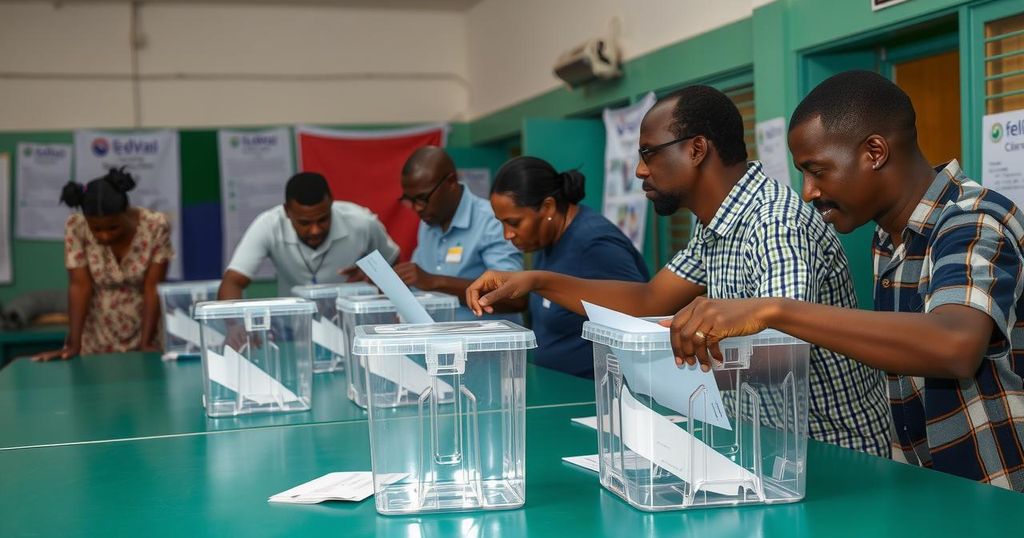Comoros Votes in 33-Seat Parliamentary Elections Amid Political Tensions

Voters in Comoros are electing a 33-seat parliament amid controversy over President Azali Assoumani’s 2022 re-election. Approximately 338,000 voters are registered, with around 100 candidates competing. Opposition parties are divided on participation strategies, with some advocating for a boycott and others emphasizing the importance of exposing the regime’s flaws. Election results are expected by Friday.
Voters in the Comoros are participating in parliamentary elections to fill the 33 seats in the country’s parliament, with polling having commenced on Sunday. This election comes in the context of President Azali Assoumani’s re-election last year, which has been contested by the opposition due to claimed electoral irregularities. Approximately 338,000 individuals are registered to cast their votes, and nearly 100 candidates, vetted by the Supreme Court, are in contention.
The political landscape in Comoros remains tense, as Assoumani’s opponents accuse him of authoritarianism and harbor suspicions regarding his plan to position his eldest son, Nour El-Fath, as his successor upon the completion of his current term in 2029. The President has been in power since 1999, having assumed control through a coup, and has since secured three electoral victories. Most notably, he has extended extensive powers to his son, appointing him in 2024 to oversee all governmental operations.
In light of the elections, some opposition factions, including the Juwa party led by former President Ahmed Abdallah Sambi—currently serving a life sentence—have advocated for a boycott, a suggestion not followed by all opposition entities. Hamidou Karihila, a candidate from the opposition Hope of the Comoros party, articulated the viewpoint that participating in the elections exposes the regime’s vulnerabilities. The election outcome is anticipated to be revealed by Friday, which may significantly influence the future political dynamics of the Comoros.
The Comoros, an island nation located in the Indian Ocean, has experienced significant political instability since its independence from France in 1975. President Azali Assoumani, who has held power intermittently since 1999, was re-elected last year in a controversial election underscored by allegations of fraud and irregularities. The recent parliamentary elections serve as a critical junction for the political future of the nation, with the opposition seeking to challenge Assoumani’s authority and express their grievances against his governance style and consolidating power within his family.
The parliamentary elections in Comoros represent a pivotal moment for the nation, reflecting ongoing tensions between the ruling party and opposition forces. Allegations surrounding President Assoumani’s authoritarian governance and the potential hereditary succession for his son complicate the political landscape, raising questions about the future of democratic practices in the archipelago. The forthcoming results will be closely monitored to gauge the effectiveness of opposition strategies and the resilience of the current regime.
Original Source: www.muswellbrookchronicle.com.au








